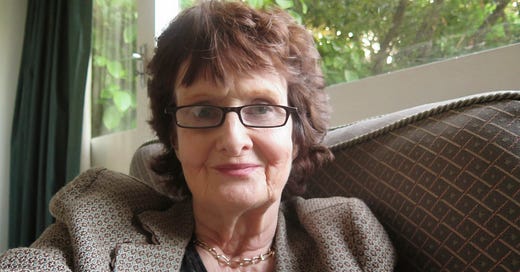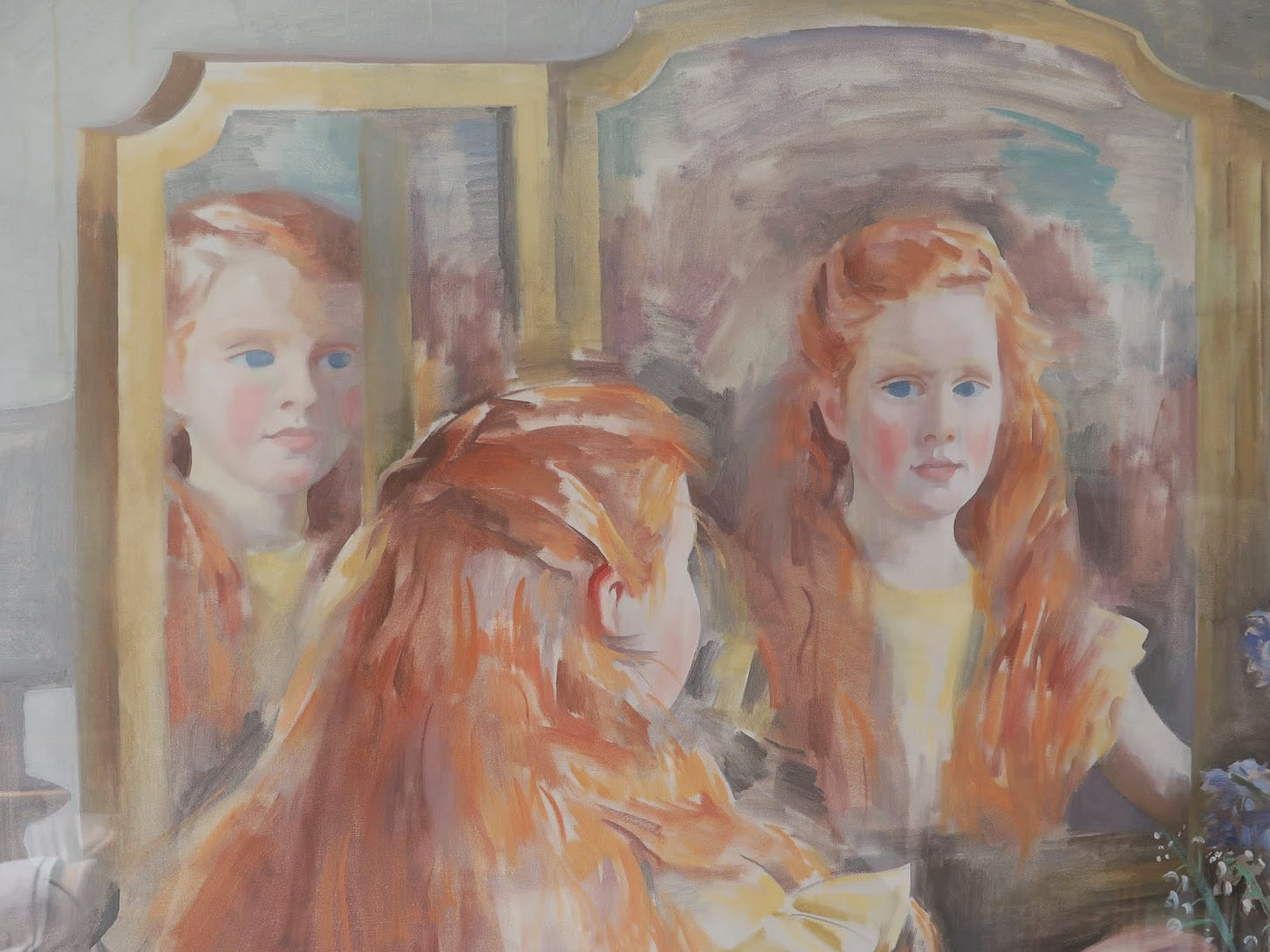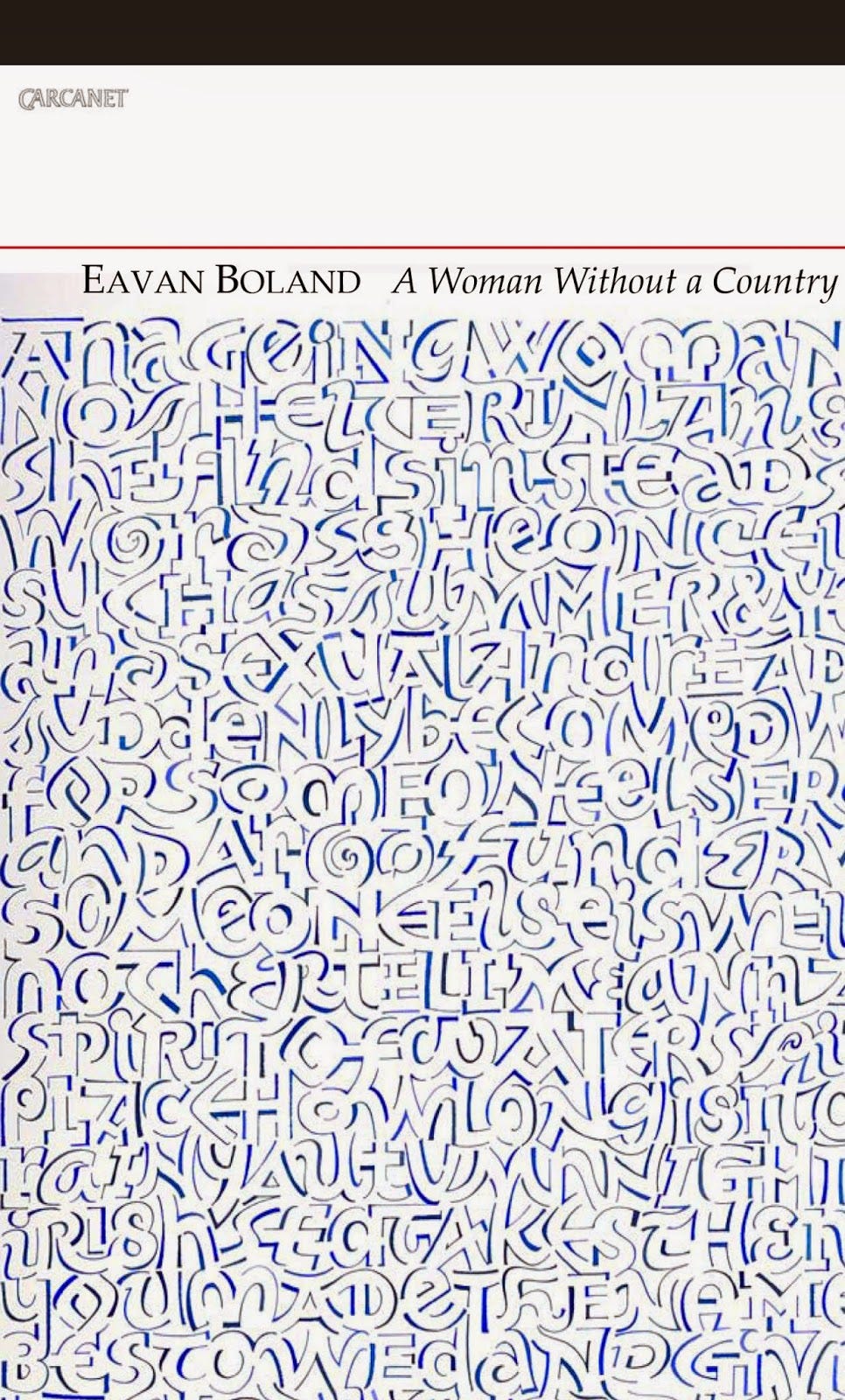Portrait of Eavan Boland as a child by her mother, the painter Frances Kelly
In addition to the publication of her eleventh single volume of poems, A Woman Without a Country, this month marks the 70th birthday of renowned and celebrated Irish poet, Eavan Boland. In the forthcoming issue of PN Review, Carcanet honours the life and career of this remarkable poet through poetic responses to her work, critical essays by contemporary admirers, and a piece by Boland herself on her earlier experiences of reading poetry when she was a student in Dublin. Here, we have compiled a few extracts from this special edition of PN Review for you to enjoy.
From the introduction by Jody Allen Randolph
Two aspects of this special supplement on Eavan Boland’s work seem especially worth noting. The first is self-evident. It is the achievement of Eavan Boland as poet, essayist and maker of a critique that has reshaped Irish literature and is influencing a global conversation about women poets emerging from resistant traditions. The second aspect is more general and less visible. It is the changing conversation about poetry in our time: the ways in which “an apparently monolithic poetic past,” as Boland described it in A Journey With Two Maps, has become a conversation that readers can “join and change.” I have followed both Boland’s work and this evolving conversation for the best part of thirty years, from Carcanet’s publication of The Journey to its release this month of her eleventh volume of poems, A Woman Without a Country. Illuminating exchanges over those years with Michael Schmidt about this singular progress led to our collaboration on this special supplement.
From 'Dictions and Discoveries' by Colm Tóibín
Eavan Boland’s poem ‘Love’ from the volume In a Time of Violence both uses and creates myth; it allows, as the poem’s second line suggests, myths to collide. The poet herself is a sort of Orpheus in the poem, charming a loved one with her lines. She invokes Aeneas in the underworld, and Icarus’s dangerous flight over the world above, and also Ceres and Persephone, as she remembers a child who recovered from illness. But, to match this, or set against it, she finds a plain-spoken tone that belongs to now; she heightens this tone and makes it taut, but it remains the voice of a woman speaking. History is now and it is in the words she writes. The opening of the poem is in Iowa, a real place in a real time:‘Dark falls on this mid-western town’
From 'A Woman Without a Country: A Detail' by Eavan Boland
A simple question. Why have so few women, in the history of poetry, been citizen-poets? Why have so few set up their poems with country, nation, nationhood, placing themselves at the center of those themes? “Words are women, deeds are men”, writes George Herbert. And so it would appear.
The more I wrote poetry, the more I read those women poets from past centuries with a deep pleasure and instruction: Dickinson’s cryptic lightning. Rossetti’s management of a stanza. Bradstreet’s bold, deceptive tone. But I was also troubled. When I looked at a particular poem, my mind would turn to the poet who wrote it. There with her book in my hand—with all the advantage of hindsight—I would be distracted trying to summon the wars, treaties, large events and small decisions that once governed her life. Weren’t those the years of the gold rush, I would ask myself? Wasn’t that beautiful lyric about determinism written in the same year as the Women’s Property Act? After a while, however much I liked the poem, what was beyond it—what was unavailable to it—fell like a shadow across the lines. Sometimes when I put the book down, its author seemed to me a woman without a country.
Eavan Boland will be appearing on BBC Radio Four tomorrow evening at 8pm alongside fellow Carcanet poet and National Poet of Wales, Gillian Clarke, Poet Laureate Carol Ann Duffy, and National Poet of Scotland - or Makar - Liz Lochhead. The group was first interviewed by Peggy Reynolds on Radio Four 21 years ago, when all four were at the beginning of their careers. Tomorrow's programme, Four Women Poets Today, revisits the original interview, and looks back on the last two decades of each poet's career.
Eavan Boland celebrates her 70th birthday on Wednesday 24th September.







